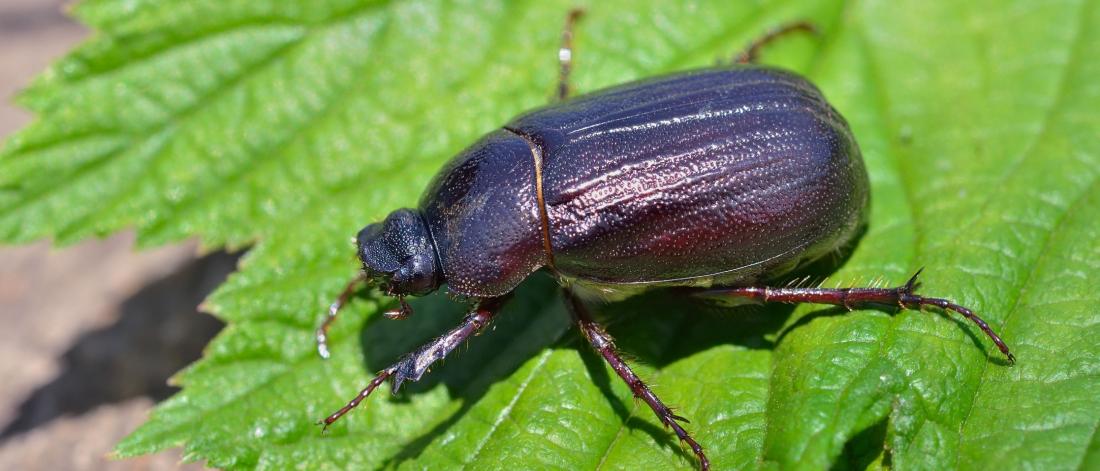
Chafer Beetle
Protect your lawn from the Chafer Beetle with these options.
Patches of dead, spongy grass with areas dug up by crows and raccoons are signs that your lawn may have a chafer beetle infestation.
Chafer Beetle is an invasive turf pest
The European Chafer Beetle was first discovered in the Lower Mainland in 2001 and has continued to spread into surrounding communities, including Surrey.
- Living most of its life in the soil, the beetle's wormlike larvae do the most damage by feeding heavily on grass roots, creating visible patches of dead and dying turf.
- Natural predators such as raccoons and crows help reduce their population, but their digging for the larvae can leave quite a mess.
Minimizing infestations
A healthy lawn with dense roots is of no interest to Chafer Beetles. Follow these steps to keep your lawn thick and healthy:
- Aerate regularly
- Top dress with compost
- Over-seed
- Water Regularly
- Reduce mowing
Raccoons and crows digging up your lawn are actually helping by removing many of the beetle larvae. Rake to remove any pulled up sections, and add a top layer of compost and grass seed in the spring to help a healthier lawn return.
Alternatively, instead of grass, consider a ground cover that remains green year-round, is drought resistant and requires little or no mowing. Creeping thyme and micro clover are a few examples of the many lawn alternatives available. Learn about water-wise options.
Using nematodes to combat infestations
For a target method of control, nematodes can be easily applied to your lawn during July. Nematodes are a natural way to treat lawns infested with European chafer beetles. In order for the treatment to be successful, we recommend Surrey residents apply nematode treatment in July and August for best results. In order to water outside the permitted watering times in the summer, residents must apply for a special sprinkling permit.
Special water permits
Special water permits are available for new lawns, newly seeded lawns or lawns under natural pest control, such as nematode treatments to control European Chafer Beetles. Development sites are not exempt from water restrictions and require a permit for new lawn or seeds.
Learn more about special water permits and lawn sprinkling permits.